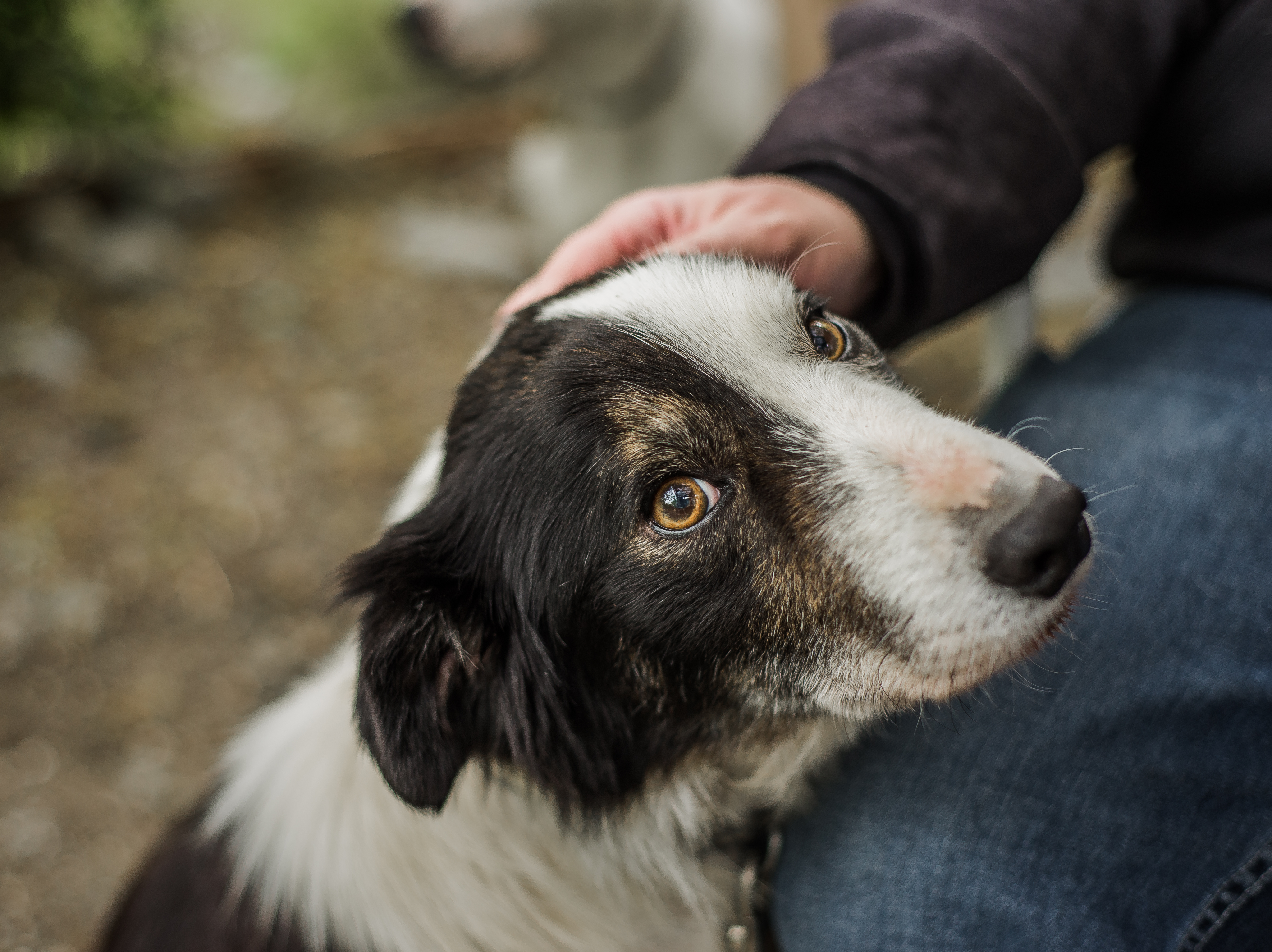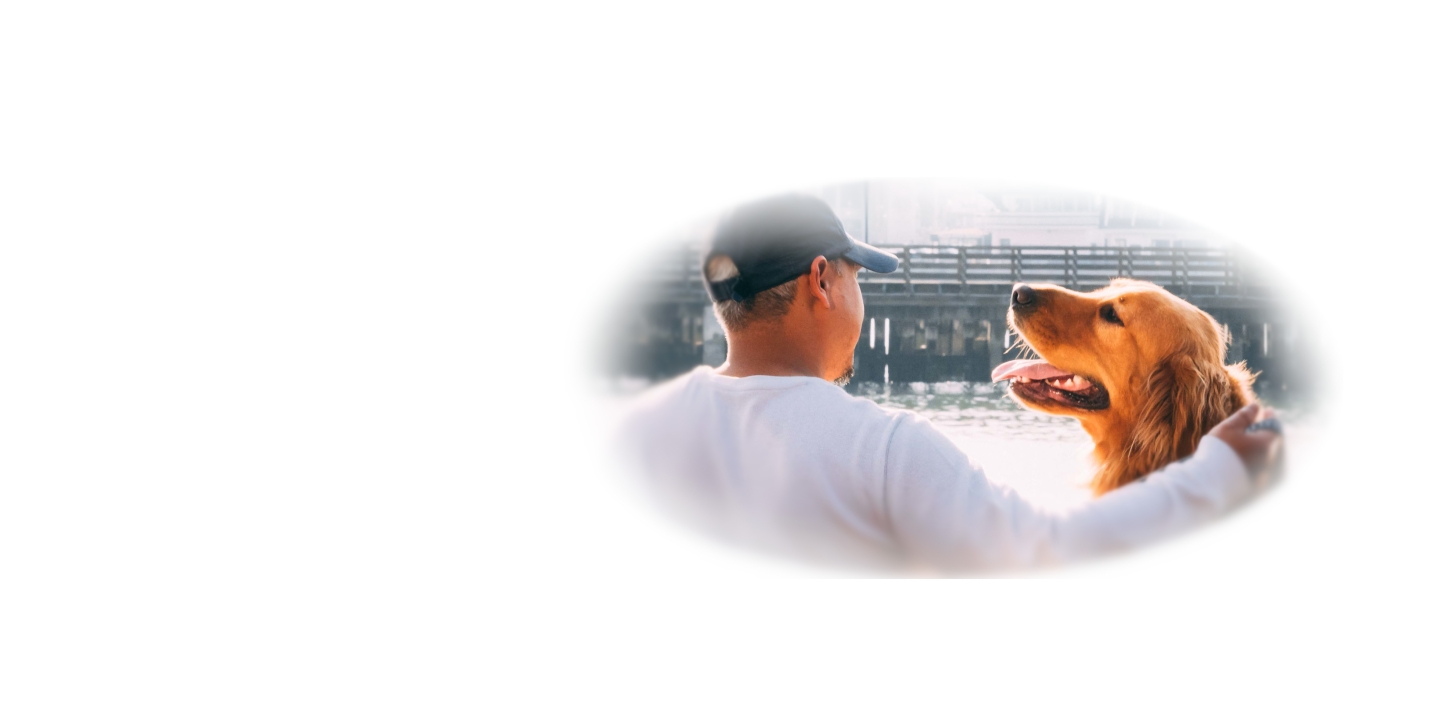Fear of fireworks and thunderstorms

The sounds from fireworks, thunderstorms and other loud noises are common sources of fear and anxiety in many dogs. There are several reasons why a dog may develop this type of fear, such as a negative experience around a specific noise, lack of early socialization as a puppy, underlying illness, or because of worsening anxieties as they age due to changing brain chemistry. The signs of fear can range from mild to severe, including trembling, vocalizing, panting, pacing, drooling, hiding, digging at doors and escape attempts.
When pets get scared, they may try to flee and escape in search of safety. The source of firework noise can confuse our pets, so dogs may frantically try to escape outside. This leads to pets running away from home and putting themselves in danger of injury or getting lost in their most frightened state. Always ensure your dog’s ID collar and/or microchip information are current, and secure your home and yard as a precaution.
With some advanced planning, you can help your dog feel safe during a stressful time. Set your dog up for success with the following tips:
- Talk to your veterinarian about anti-anxiety medications well in advance. If medications are prescribed, trial them first on a day without noise to see how your dog tolerates them.
- Give prescribed anti-anxiety medications early enough before the fireworks or thunderstorms start. It is much easier to prevent a fearful reaction than to reverse one.
- Exercise or play outside earlier in the day. Plan bathroom breaks and outdoor exercises accordingly to avoid going outside after the fireworks or storm start. If you must go outside, keep them on a leash, even in a fenced-in backyard, as a precaution.
- Stay home to comfort them. Many dogs with noise phobias may also have some separation anxiety, so your absence may make them even more stressed. If this isn’t possible, consider a pet sitter they know and trust. Punishment must never be used because it will only increase your dog’s distress.
- Create a safe space. This should be in a location of the home they are familiar with and have a cozy bed or blankets. Keep them in a room farthest from the noise and with few or no windows to help decrease outside sound. Only use a crate if they are already accustomed to it and consider it a safe spot.
- Play white noise and music. Layering two different types of sound can help drown out the noise. Calming classical music may also help reduce stress.
- Offer long-lasting treats such as stuffed frozen Kongs, Lickimats, or other food toys.
In some cases, adjunctive therapies, such as pheromones or other nutraceuticals, may be helpful additions. Always seek scientifically supported therapies as recommended by your veterinarian. If your dog’s fear, anxiety and stress feel unmanageable during fireworks, thunderstorms, or other loud noises, speak to your veterinarian, or consider a referral to a veterinary behaviorist, as more extensive treatment, including medications and behavior modification, may be needed.
Click here to find a veterinary behaviorist near you.

